
This adult Wandering Albatross was one of many of these majestic birds that we saw around Marion and Prince Edward Island on ‘Albatross Thursday:
After three years of waiting and overcoming a considerable number of hurdles, in late January 2022 BirdLife South Africa's Flock to Marion departed Cape Town harbour. We were southbound for the Prince Edward Islands aboard the luxurious MSC Orchestra...
The Prince Edward Islands are situated in the Roaring Forties, approximately 2130 kilometres south-east of Cape Point, and consist of two volcanic islands breaching the surface in the deep, cold-water currents of the Southern Ocean. Marion Island is the larger of the two (approximately 290 square kilometres), with Prince Edward Island (45 square kilometres) lying about 22 kilometres to the north-east. Both islands are surrounded by the Prince Edward Islands Marine Protected Area, which was proclaimed to care for the sensitive fauna and flora on and around the islands. They are home to 29 breeding species of birds: five albatross, 14 petrel, four penguin and six others.
For most on board, seeing the Critically Endangered Tristan Albatross was one of the highlights of the Flock to Marion trip.
This story is from the {{IssueName}} edition of {{MagazineName}}.
Start your 7-day Magzter GOLD free trial to access thousands of curated premium stories, and 9,000+ magazines and newspapers.
Already a subscriber ? Sign In
This story is from the {{IssueName}} edition of {{MagazineName}}.
Start your 7-day Magzter GOLD free trial to access thousands of curated premium stories, and 9,000+ magazines and newspapers.
Already a subscriber? Sign In

EXPLORING NEW HORIZONS
Keith Barnes, co-author of the new Field Guide to Birds of Greater Southern Africa, chats about the long-neglected birding regions just north of the Kunene and Zambezi, getting back to watching birds and the vulture that changed his life.

footloose IN FYNBOS
The Walker Bay Diversity Trail is a leisurely hike with a multitude of flowers, feathers and flavours along the way.
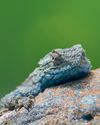
Living forwards
How photographing birds helps me face adversity
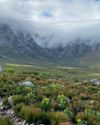
CAPE crusade
The Cape Bird Club/City of Cape Town Birding Big Year Challenge
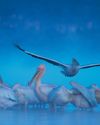
water & WINGS
WATER IS LIFE. As wildlife photographer Greg du Toit knows better than most.
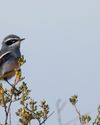
winter wanderer
as summer becomes a memory in the south, the skies are a little quieter as the migrants have returned to the warming north. But one bird endemic to the southern African region takes its own little winter journey.
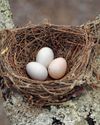
when perfect isn't enough
Egg signatures and forgeries in the cuckoo-drongo arms race

Southern SIGHTINGS
The late summer period naturally started quietening down after the midsummer excitement, but there were still some classy rarities on offer for birders all over the subregion. As always, none of the records included here have been adjudicated by any of the subregion's Rarities Committees.

flood impact on wetland birds
One of the features of a warming planet is increasingly erratic rainfall; years of drought followed by devastating floods. Fortunately, many waterbirds are pre-adapted to cope with such extremes, especially in southern Africa where they have evolved to exploit episodic rainfall events in semi-arid and arid regions. But how do waterbirds respond to floods in areas where rainfall - and access to water - is more predictable? Peter Ryan explores the consequences of recent floods on the birds of the Western Cape's Olifants River valley.
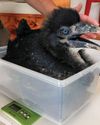
a star is born
It’s every producer’s dream to plan a wildlife television series and pick the right characters before filming.